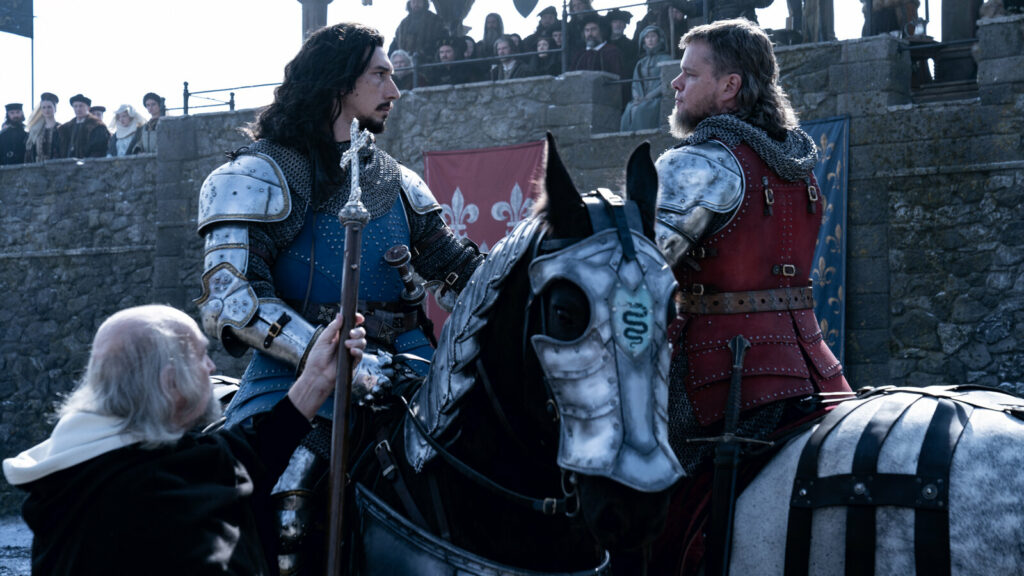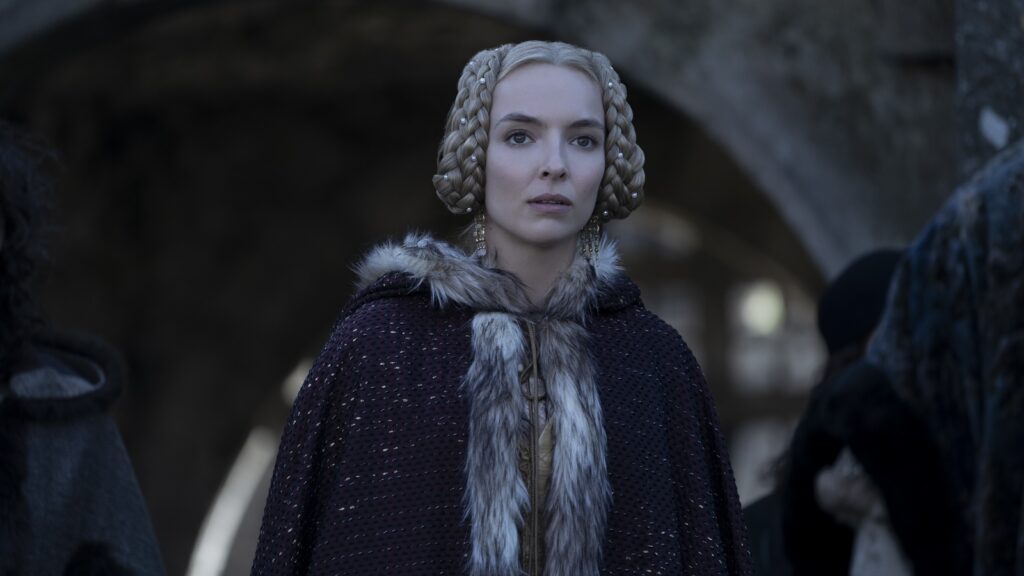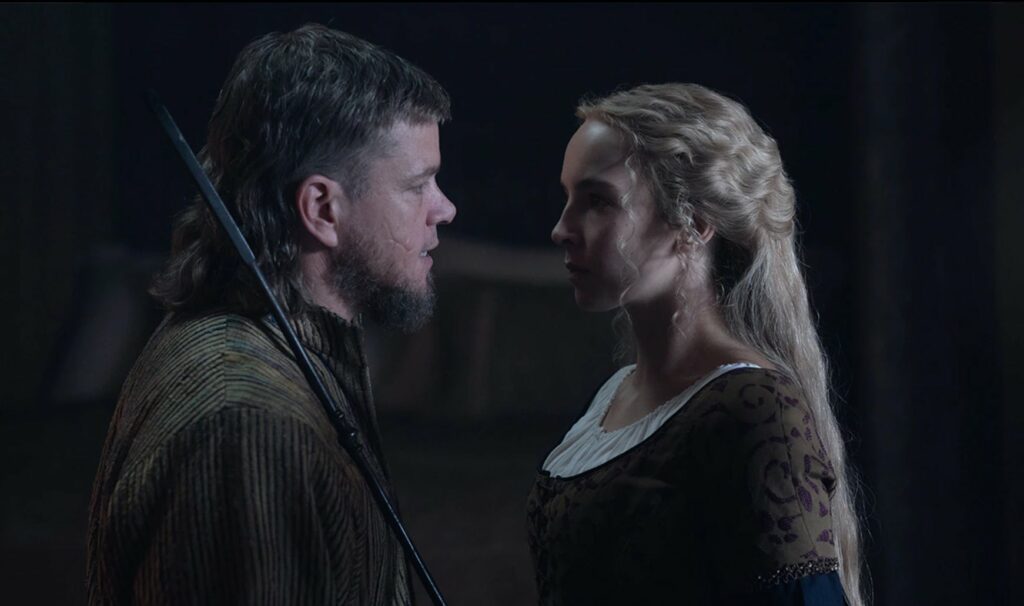The old adage tells us that “there are two sides to every story.” Yet The Last Duel veers closer to another proverb: “Don’t believe everything you hear. There are three sides to every story: yours, theirs, and the truth”. Ridley Scott‘s historical epic is based on the true story of the last sanctioned trial by combat to take place in France, back in 1386, between Sir Jean de Carrouges and Jacques Le Gris. The latter stood accused of the rape of Carrouges’s wife, Marguerite.

The film is split into three blocks, Rashomon-style, with the lead up to the crime and subsequent fallout told and retold from three different perspectives: Jean’s (Matt Damon), Jacques’ (Adam Driver) and Marguerite’s (Jodie Comer). In a good move towards more authentic storytelling and better representation, Damon and Ben Affleck, writing together for the first time since Good Will Hunting, join forces with Oscar-nominated writer of Can You Ever Forgive Me? Nicole Holofcener to help write Margherite’s perspective.
The three-part dissection of different vantage points is an ingenious narrative device, which both heightens the drama and the audience’s emotional investment in the outcome of the titular duel. While the events surrounding the crime can be argued in the courts, the film exposes another crime, one where the accused is undeniably guilty… Ben Affleck, for the crime of scene stealing.
For his performance as Count Pierre d’Alençon sees him walk away with the second third of the film – no easy feat when facing off against Driver as the chapter’s lead. On paper, Affleck’s performance shouldn’t work within Scott’s typically straight-faced medieval fare. Yet it does: credit goes to Robert Pattinson’s The Dauphin in The King, for walking so that Pierre could run. The loud, louche Noble (who is anything but) is a combination of Affleck’s preening Ned Alleyn from Shakespeare In Love and the Asshole from Fashionable Male in Mallrats. A spoilt, misogynistic president of a Boys Club and the embodiment of why women are reticent to speak out in the fear (and knowledge) that their claims will go unheard. It is a masterful performance that helps to bridge the gap between the medieval age and today’s politics.

In the whole narrative set-up – two men fighting over a woman’s honour – there always was the risk that Marguerite would be overshadowed or objectified. Yet in some ways, this is The Last Duel’s design; though initially depicted as a McGuffin, an object of affection seen through the eyes of the men who desire and covet her, the last chapter is her own. Hearing her testimony and seeing Jean and Jacques through her eyes not only lends her the agency she deserves, it also makes for a fascinating study on how people see themselves as heroes in their own story.
Where Jean is courageous and protective in his own eyes, through Marguerite’s, he is a petulant bully who feels as though the attack on his wife is less about harming her, and more about threatening his masculinity. Where Jacques sees a burgeoning attraction with his friend’s wife, she was simply offering kindness and pleasantries, misconstrued by a self-absorbed man who believes a woman’s smile can only be an invitation. The depiction of the rape itself is both brutal and deeply upsetting. And yet, the most shocking aspect is how little difference there is between the scene from the attacker’s perspective, and the victim’s.

Set over 600 years ago, it would at least be comforting to know that things have changed since then; that we have become more civilised, and that the treatment of women has evolved for the better. Yet at a moment in history when the world is still demanding change in the wake of the #MeToo movement, the Marguerite’s persecution feels all too familiar. Where the men are simply asked if what they said is true, the woman is cross-examined within an inch of her life. Sexual histories and gossip are paraded in front of her to sully her character and the public’s perception, she is asked for gruesome details on the encounter, questioned as to whether she achieved “the little death” during the act, and on, and on…
It is here where Comer proves herself, yet again, as one of the finest actors of her generation. Villanelle in Killing Eve may have been her calling card, but she has since demonstrated a range and depth that undeniably cements her status as a great talent: she effortlessly delivers not one, but three performances in one film. The moment she learns that, should her husband loses the duel, it would be regarded as proof of her guilt and that she would be burned alive for her lies, is a quietly devastating standout.
With the stakes set so high, Scott rises to the challenge and delivers a brutal, visceral “last duel” with complex narrative designs and a phenomenal carousel of performances.
The Last Duel releases in cinemas from October 15th, 2021.
